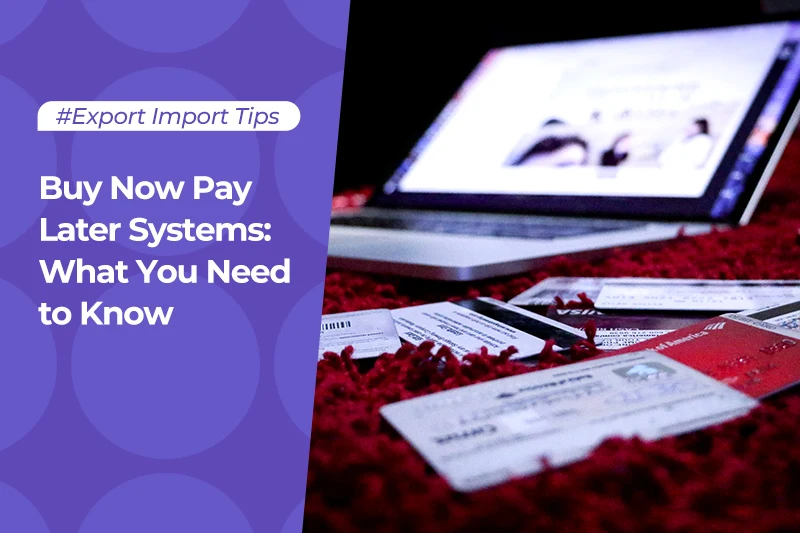Trading vs manufacturing, which business to start?

There are many ways to start a business these days, both in physical locations and on the internet. But if you’re interested in tapping into the B2B market, you’ll soon find yourself wondering if you’re best served with starting a trading or manufacturing company.
For many people who want to buy goods for retail trade or drop shipping, there’s often a debate about which of these types of companies is better. People want to know which one will fulfill their needs best and where they can get the best prices.
But when you’re on the other side of this debate, the considerations you’ll need to keep in mind will be far different. For instance, there are questions of cost, operations, product sourcing and the options you’ll have for distribution.
Will starting a trading company be more profitable for you over beginning a manufacturing business? What can you expect when doing business with either one of these entities?
If you’re not entirely certain which is right for you or what to expect, there are no worries. In this article, we’ll explain all you should know about trading companies and manufacturing companies, and how they compare to each other.
What are trading companies and what do they do?
Trading companies are typically engaged as “middlemen” in the production and distribution of goods and services. They usually buy, sell, and deliver goods to retailers in other geographical areas or even to a final consumer that wishes to buy wholesale.
Trading companies are usually located at or around areas of high manufacturing activities, or have offices close by. As a result, they are typically engaged in wholesale trade which involves buying from manufacturers and handling eventual sale through their distribution channels.
If you have ever bought anything on global ecommerce marketplaces such as Alibaba.com, then you must have dealt with trading companies. Apart from maintaining online storefronts on digital platforms, trading companies usually have physical locations too.
Many of these locations are devoted to retailing products from multiple manufacturers. In some instances, they may even become licensed distributors for specific manufacturers in a geographical area.
Key considerations in starting a trading company
As with starting any other business, there are important things to keep in mind when starting a trading company. Some of these include:
- Deciding on location: although no business can be entirely digital, you need to decide if you want to carry out most of your activities on the internet. If you decide against digital, then you will have other considerations such as securing a physical office location, furnishings, and equipment.
- Product focus: you should determine what products you would like to trade. Your options include being a distributor of several products or focusing on distributing a single product.
- Product sourcing and licenses: when you have made your decision, you next have to decide where to source your products from. Trading companies must have a good relationship with the manufacturers that make the products they want. So, this is something to keep in mind.
- Distribution network: you cannot have a trading company without an established distribution network. You need to be able to move whatever goods you stock and your distribution network will be vital to this.
- Delivery and shipping solutions:consider what options you want to provide for delivery and shipping of products. Some options include air or sea freight and last-mile delivery solutions. B2B portal sites like Alibaba.com often provide logistics options you can use.
- Labor and payroll: trading companies do not necessarily need a high staff count. You can do plenty, even with just three to five employees. But this depends on the size of business you want to build.
What is a manufacturing business and what does it do?
Unlike trading companies, manufacturing companies are actually involved in the creation of tangible products from raw or partly finished materials. These companies use a combination of computers, machines and skilled workers to create products, sometimes from scratch.
There are several types of manufacturing companies. Some are involved in producing consumer goods, while others manufacture chemicals, machinery, pharmaceuticals, and a range of other products.
These companies typically hire a lot of workers and use a lot of equipment. They also typically require a large amount of real estate in order to properly fulfill their production needs and also to maintain safe distance from people.
Manufacturing companies are constantly tweaking their production processes to ensure they can deliver quality products without hurting their bottom line. Some of the production models these companies use include:
- Make to stock: this is the most common model of production and it involves manufacturing goods based on forecasts about supply performance. This model can be tricky to implement, as there’s a risk that demand will be lower than expected.
- Make to order: this model can be less risky for manufacturers as it means they only produce goods based on existing demand. But it can also lead to pressures on the company if demand outstrips production capacity.
- Make to assemble: this model was developed as a hybrid between the first two models. The company maintains a ready supply of raw materials or components for production but only assembles the final goods when an order is received.
But it’s not in all cases that you have to actually produce goods from scratch as a manufacturing company. Some companies outsource aspects of the production process, like buying computer chips from another company, to make their manufacturing process shorter.
Key considerations in starting a manufacturing company
Compared to trading companies, manufacturing companies can be much more capital-intensive. It can take a lot of money to establish these companies, leading to questions about whether you would need to seek financing. Some other key considerations include:
- Licenses and approvals: depending on the type of product you want to produce and the industry, there will be a mountain of approvals to obtain. You have a responsibility to ensure your products are safe and meet industry standards and you must obtain certifications that establish this.
- Infrastructure and equipment: some of the largest outlay for manufacturing companies will come here. Due to the potentially high cost, many companies consider outsourcing most of their manufacturing process and equipment leasing where possible.
- Production input: you’ll have to make a lot of decisions about how you want to produce your goods. Some of these include where to source your raw materials from, your preferred production processes and other matters.
- Patents and trademarks: this can be a tricky one to navigate. If you are doing many things in ways that have not been done before, it is important to explore how a patent application can protect you. You’ll also need to secure trademarks for your product name, package design, and colors.
- Labor and payroll: for manufacturing companies, getting skilled employees is very important. The location of your factory may however determine your access to a pool of workers with the necessary skills and competitive wages.
- Distribution network: Lastly, you may need to consider arrangements for getting your products out of the factory. You will need buyers for what you make, and these can range from wholesalers to even final consumers.
Trading versus manufacturing business
As you have seen, trading and manufacturing companies can be quite different, even though they both focus on producing and distributing tangible goods.
Trading companies may require a potentially lower capital outlay than manufacturing companies. But this can vary, depending on whether you choose to outsource some parts of the production process, and the size of the manufacturing company in relation to the trading company.
Despite their differences, trading and manufacturing companies enjoy a complementary relationship. While one produces the goods, the other can be key in getting them shipped to consumers in markets all around the world.
Ultimately, regardless of which entity you pick, you’ll still be just as instrumental to presenting quality products to buyers in global markets.
Alibaba.com gives you a global platform
As the leading online B2B marketplace for businesses from all over the world, Alibaba.com provides the right platform for global trade. Whether your goal is to export products from one country or bring them into another country through imports, we help you reach millions of B2B buyers globally.
So, regardless of your decision to go with a manufacturing business or a trading business, you can easily create a storefront, post products, and sell to millions of B2B buyers on Alibaba.com.
Interested in finding out more? Learn how selling on Alibaba.com works.
Further reading on trading and manufacturing:
Start your borderless business here
Tell us about your business and stay connected.
Keep up with the latest from Alibaba.com?
Subscribe to us, get free e-commerce tips, inspiration, and resources delivered directly to your inbox.














